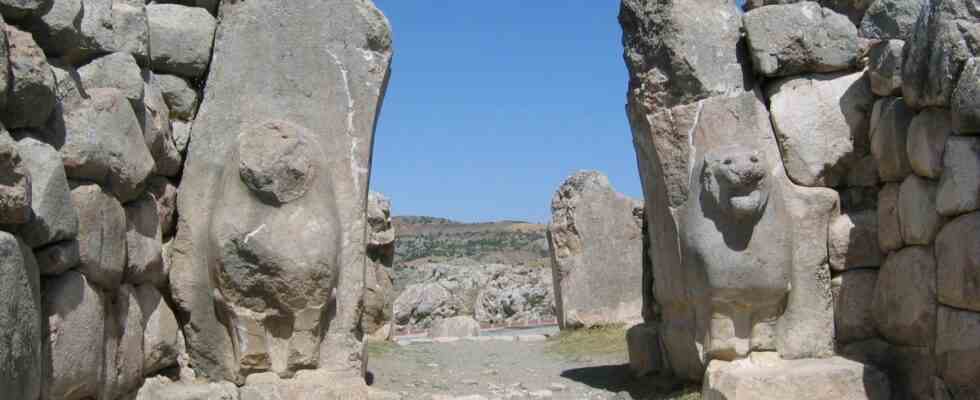History does not repeat itself, but some lessons can be learned. For example this: Humans cope alarmingly badly with climate change. A study makes you sit up and take notice recently in the journal Nature appeared is. Because it shows how fragile even a powerful, long-lasting civilization can be.
Researchers led by archaeologist Sturt Manning from Cornell University in Ithaca, New York, have examined the circumstances under which the Hittite empire fell in the early 12th century BC. From their capital of Hattusha in the Anatolian highlands, the Hittites had ruled most of Asia Minor, northern Syria and the Levant for centuries. They spoke an Indo-European language, wrote in cuneiform and combined a wide variety of cults and cultures. And the Hittites were also used to dry conditions. Shortly after 1200 BC, however, their empire collapsed: weakened by failed harvests, they could no longer resist an incursion by mysterious sea peoples, according to the current state of research.
Manning and his colleagues are now studying ancient timber from Gordion west of Ankara. Its tree rings allow unusually precise conclusions to be drawn about the climate between 1775 and 748 BC. This is how they found out: Around 1198 to 1196 BC the Hittites suffered from a devastating drought. There were more signs of drought in the years that followed, but apparently three consecutive years of drought were enough to collapse the empire.
The downfall of the Hittites may have been caused by “climate change” has since been reported in various media – but this story can hardly be compared with today’s man-made crisis. The drought of the 12th century may have destroyed the Hittite empire and also affected the neighboring Assyrians. However, it was essentially limited to regions around the Black Sea.
Today’s climate change cannot be limited in this way. If, for example, the Thwaites Glacier in Antarctica melts (SZ Plus), this will have global repercussions. Potentially bursting glacial lakes are a threat to millions of people, especially in Pakistan and China, but also in Peru and India. The at also show how strongly the climate crisis is already shaping life in many places around the world Now published climate diaries of young people. Recently, a young shepherd from northern Sweden told how the crisis is causing his reindeer to starve.
And yet something can probably be learned from the fate of the Hittites. “Situations where protracted, truly extreme events like this occur over two or three years can unbalance even well-organized, resilient societies,” archaeologist Sturt Manning is quoted as saying in a press release. “We may be approaching our own breaking point.” It would be all the more important to change course quickly.
(This text is from the weekly Newsletter climate friday you here for free can order.)

